| | In August I attended a weeklong summer school course on comparative authoritarianism with Joe Wright, (assistant professor Penn State) at the University of Oslo in Norway. The course was part of the Oslo summer school in Comparative Social Science Studies and was a great opportunity to learn and discuss about recent works concerning authoritarianism. It brought together an international group of 20 PhD students that are all on ther own dissertation concerned with authoritarianism. In that respect the summer school provided The program was designed along different issuesfrom the academic debate on authoritarian regimes such as: personalist rule, military rule, institutions, elections, parties and so on. During the sumemr school we also gradually adapted the schedule in order to have more time to actually discuss and bring our own research into the debate. This was great because we could actually gain very valuable feedback from Joe and other PhD-leve peers working on the topic. My personal experience was that the feedback I received in Oslo during the summer school here was better than the feedback and comments you tend to receive in larger conferences. There was also a couple of organized trips and activities such as a city tour. Generally Oslo was a very pleasent environment academically and city-wise. The fact that the weather was so good (hottest norwegian summer in 100 years) did the rest in a city that is right next to the sea. All in all the summer school turned out to be very worthwhile and fruitful for my research. |
|
1 Comment
In July I presented a paper at the ECPR Graduate Conference in Innsbruck on the Ethnic dimension of cooptation in executives across authoritarian regimes and the impact of inclusion and exclusion on regime survival. I am writing the paper with a colleague from my Almer Mater the CIS at the ETH Zürich. The panel was titled: "Cultural diversity as a hindering or supporting factor for regime change and stability" unfortunately the two other papers presented in this panel were not really focussing on authoritarian or regime stability but simply on case studies of ethnically heterogenious countries and the degree to which this heterogeneity has been accounted for in the politics of those countries. Or in how far there has been a pattern of inclusion or exclusion over recent decades. Therefore our paper was the only one with a particular focus on an impact of inclusion or exclusion along ethnic lines on regime stability. Nevertheless we received constructive feedback from the conveners and other participants of the panel. In general the ECPR Graduate conference is a good way for getting a feeling of how bigger political science conferences work and to get first experiences in presenting your own work, discussing and commenting papers or chairing panels. To be honest the overall quality of the panels I visitied was rather moderate. I could not gain as much from most of the presented papers. This might also just be my subjective experience at the Graduate Conference thoug. If you have already been to conferences or presented your work in workshops or collouquia I think the best way to get forward as a PhD student is to present at conferences were actually also other -more senior- people besides your peer PhD students are presenting, discussing and listening. This is not to say that I have not met nice and interesting people in Innsbruck but lets just say the networking possibilities and learning opportunities are obviously a bit limited due to the fact that all other particiants are also just in their PhD or even still graduate students in their Masters. The organization of the event was great and ECPR did a good job. In addition the venue at the University of Innsbruck was simply amazing. Besides the already mentioned conference panels and organization Innsbruck had a lot to offer aside of the conference too. Located right in between the mountains of the Alps and on the side of a river steming from the glaciers above, the city offers some extraordinary nature escapes in walking distance from tehbusy and touristy old town. The picture below was taken on a 1/2 day hike into the Sihl-valley. Getting out of the busy conference venue and exploring some of teh sorrounding nature was a real treat.
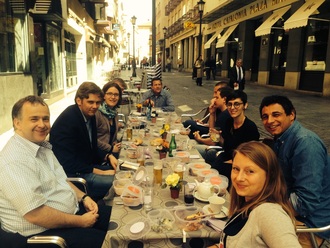 “Researching legitimacy only makes sense if investigated in combination with power or authority”[1] During April 10th-15th the 2014 ECPR[2] joint Sessions were held in Salamanca, Spain. Host of the Sessions was the University of Salamanca, one of the oldest Universities in the world (established 1218). I was happy to present my paper: The Impact of Authoritarian Learning on Reforms & the Legitimacy of Contested Regimes at the session on Regime Legitimisation Through Institutional Reform: Analysing its Dimensions and Effectiveness organized by Magnus Feldmann (University of Bristol) and Honarata Mazepus (University of Leiden). The two convenors selected 20 papers from participants representing universities all across Europe and even as far as Australia. The topics were as manifold as the approaches to the rather broad topic. The overarching aim was to account for the recent re-emergence of legitimacy as a subject of investigation within political science. Reflecting upon the literature common approaches were mapped and categorized. The distinction between normative and empirical assessments of legitimacy and legitimation was the central outcome. Most participants agreed that normative approaches remain important signal posts but do barely wield advantages for assessing legitimacy and legitimation processes in the ‘real word’ due to their subjectivity. We agreed on a need to develop further the empirical approaches to legitimacy with regards to their underlying concepts and operationalization for empirical assessment. Fundamental typologies of legitimacy and legitimation from Weber, Easton and Schumpeter were intensively discussed in the workshop. Furthermore most of the participants agreed that a focus on the processes of legitimation promises a more fruitful angle to the issue than studying levels of legitimacy at a certain moment in time. A number of papers focussed on legitimation processes in non-democracies –primarily through case studies- whereas others focussed on comparative perspective on legitimacy across the range of rather established OECD democracies. The format of the Joint Sessions offer truly a great possibility to discuss papers and ideas under a common theme with peers from all over Europe that are working in this field. The fixed workshop belonging generates an intense working atmosphere in which scholars get to know each other and can develop thought together over the course of the 5 days. Despite differences in terms of the positions of the participants the discourse in the workshop was largely ‘Herrschaftsfrei’. Which means that there was no difference being made between me (as a first year PhD student) and distinct Professors amongst the participants. The collegial atmosphere of the workshop contributed to getting to know each other and enjoying Spanish tapas together after the hard work was done. All in all I can only recommend the ECP Joint Sessions as a place of scientific deliberation and debate of ones research and ideas. The comprised and intense form of working together across all hierarchical structures is a great chance to receive feedback and comments to your own work, to get a grasp of what scholars within one’s topic of interest are doing, to discuss current state of the art approaches and concepts and finally to get to know other scholars in your field. [1] Quote form the opening presentation of the convenors [2] European Consortium for Political Science Research Trans- & international diffusion of contention, resilience & borders during the Arab Uprisings3/27/2014 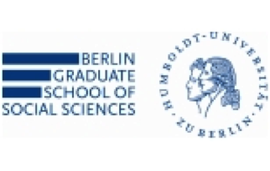 Student Research Working Group On march 21st I jointly organized a one-day workshop with two other PhD candidates from the BGSS on the international diffusion of contention, resilience & borders during the Arab Uprisings. The aim of the Research Working group was bringing together scholars that dealwith trans- and international diffusion processes during the Arab Uprisings in 2011. The workshop focussed on the question how to conceptualize diffusion processes and their underlying mechanisms on the level of the social movements, the contested incumbent regimes as well as the trans- and international actors involved. Although the participants had a different take on the changes that have come about within or after the Arab Uprisings and are concerned with different phenomena all contributions were in some way dealing with the effects of diffusion processes on their respective field of investigation. The format was intended to provide an opportunity for the participating PhD candidates to discuss there work in progress within the frame of a common overarching theme with each other and two distinguished senior scholars that were invited as discussants. After an introductory talk given by Donatella Della Porta (EUI) dealing with the conceptualization of diffusion in the social sciences with an emphasise on the importance of the temporal dimension of diffusion processes. After the introduction each of the prepared papers was briefly introduced in a presentation. The presentations were not only summing up the main arguments of the papers but also pointing out potential weaknesses or questions to the discussants. Subsequent to each of the presentations there was sufficient time for a comprehensive comments and discussion of the presented papers. All three participants were very content about the critical and constructive comments. The discussion was coined by an open discussion leaving room for replies by the author and an extensive debate. In the evening the workshop was rounded up by a keynote talk by Reinoud Leenders (KCL) with the title: “Social Movement Theory and the Arab Uprisings: Why we need it to study peaceful and violent mobilization”. The keynote was an open event and around twenty interested students and academics were present at the keynote, which led to a lively discussion. The evening was concluded over extended talks on the topic over some wine and food in the HGS Foyer. Papers discussed
Dear friends and followers, a couple of weeks ago I started helping out an initiative called "adopt a revolution". They are raising money and directly support local communities trying to improve the situation for the people in Syria. Although my main task there is translating reports and articles and writing blog posts the work is very fulfilling for me, because it gives me some kind of feeling that I am not totally powerless in facing the Syrian civil war that my own family is suffering from. To give you an idea what the raised money goes into we are cooperating with local comitees in Syria that have taken on many tasks that were prior to the war fulfilled by local administration. For example we are supporting local commitees to restore the functionality of damaged hospitals and schools. To get an idea of te projects that are supported you can visit their blog too. I have felt heplpless and powerless in face of the disastrous and ongoing crisis in Syria but through the work with adopt a revolution I feel that at least I can contribute to imüroving the situation for some people in Syria and hopefully help to rebuild the intl pressure through their advocacy work. in this the main aim of adopt a revolution is to focus doners and policy makers on supporting the civilians and improving their daily lives in face of the ongoing conflict. I think adopt a revoultion is an organization worth supporting. Everyone can contribute something. So go to there website and if you care about what happens to the people in Syria and you feel that the projects supported by adopt a revolution are worth it support us and support a free Syria! On Dec 17th I was in Zürich to receive my masters degree from ETH Zürich.
I had a great time in Zürich especially at the Center for Comparative and International Studies at the ETH. The year in Zürich was hard work but I probably learned more during that year than in all four years during my undergrad. The workload was immense but I think it was worth it. On top of that I also fell in love with the city that is so much more than the glittering facades at Bahnhofsstrasse. I got to know some amazing people and Zürich will always be a second home for me. On Decemeber 1st Mr Hamadi Jebali the former Tunisian prime minister gave a keynote speech at the campus of the Free University of Berlin.
The topic of the talk was an analysis of the current situation of Tunisia. Unfortunately Mr Jebalis picture of the situation in Tunisia remained very superficial. On the contrary he went on at length about the international environment around Tunisia and the imminent dangers and problems connected with it. His sometimes involute speech (maybe this was also due to the translators) Mr Jebali painted a picture of Tunisia as an isle of democracy in the middle east that is endangered from all sides (geographically) and dimensions (political, economic, security). the notion of terror triangles situated close to Tunisian boarders was the highlight of this talk (see foto). The whole story telling finally concluded in Mr Jebali teklling teh audience at the FU that Tunisia is in desperate need for support from Germany & Europe and it could not cope with the challenges it is facing without European support. To be honest I would have preferred a keynote focussing on the primarily domestic issues and ongoing political developments in the post-revolutionary Tunisia. The challenges do not only lie at Tunisias boarders as implied by Mr Jebali but also in the very heart of Tunisias capital and its constitutional assembly. Three years after the ousting of the cleptocratic autocrat Ben-Ali Tunisia is still struggling to give itself a new jurisiticial foundation for its new polity. Alongside this long lasting process political violence against members of the non islamic political elite is growing. None of these challenges were sufficiently addressed in Jebalis speech. |
Ilyas Salibais a researcher and PhD student in political science, freelance journalist and photographer interested in Democracy, Transition, Authoritarianism and Security especially in the MIddle East and North Africa. Archives
March 2015
Categories
All
|
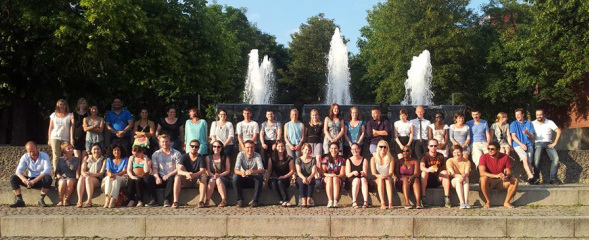
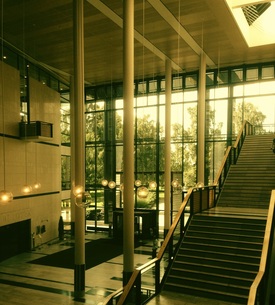
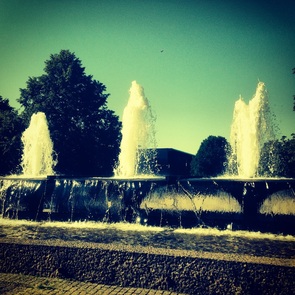
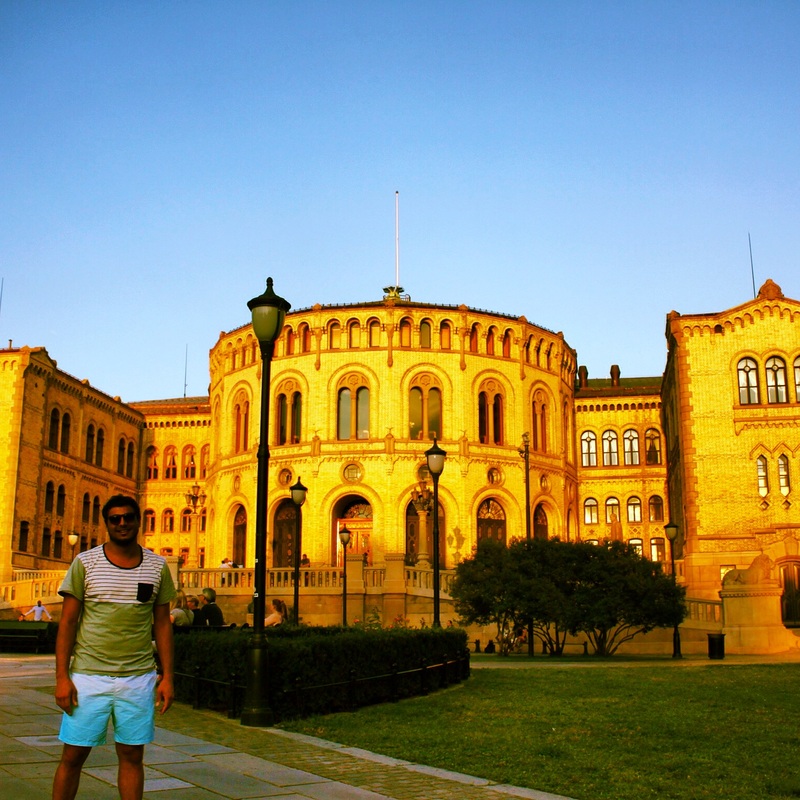
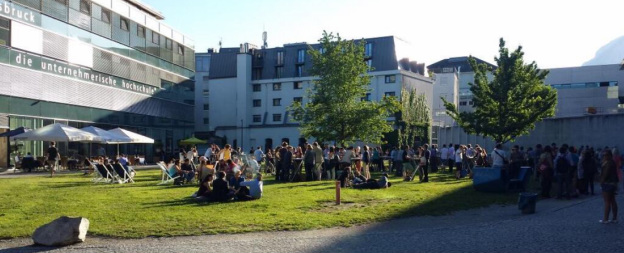
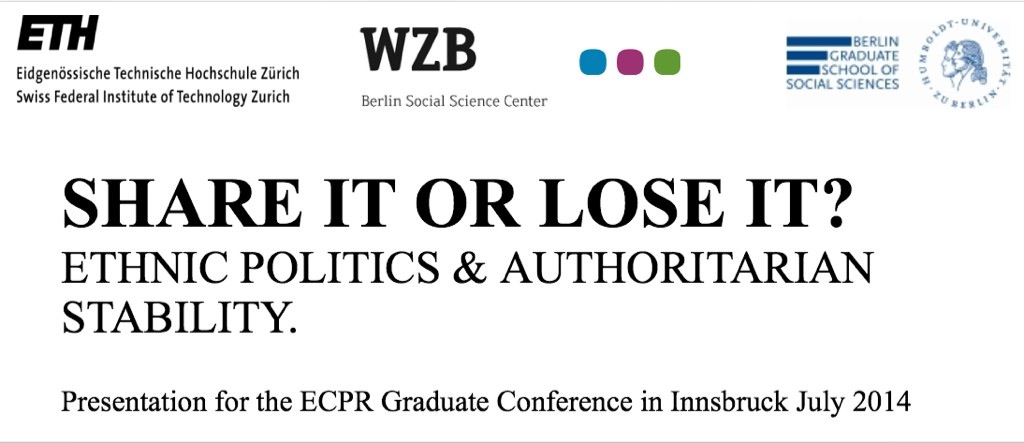
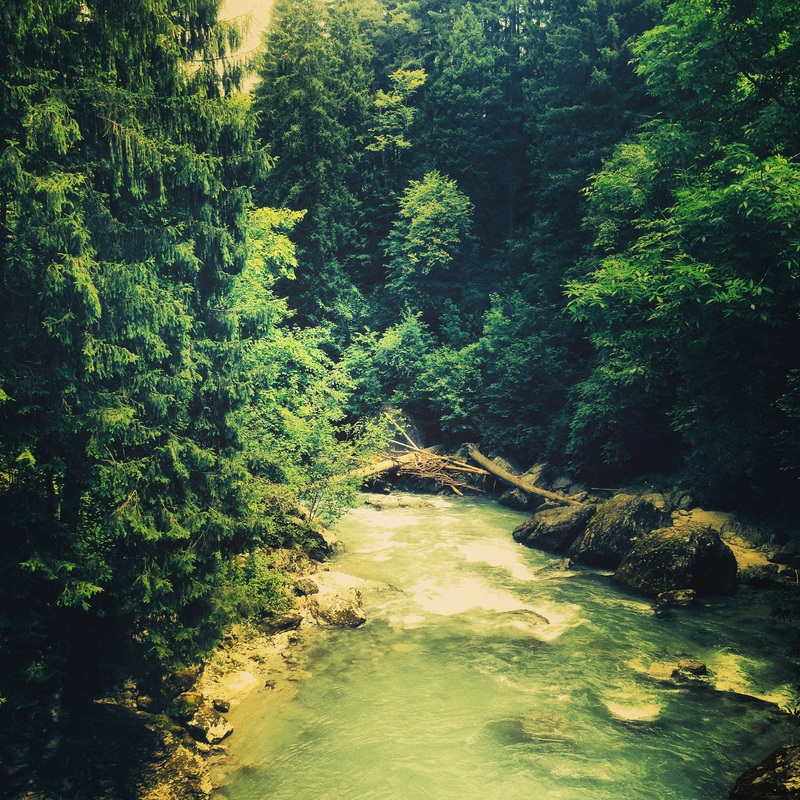
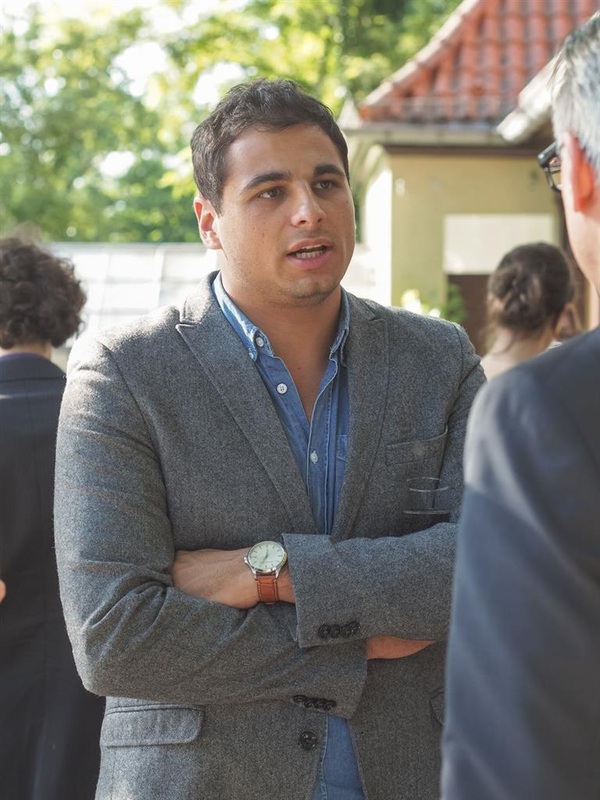
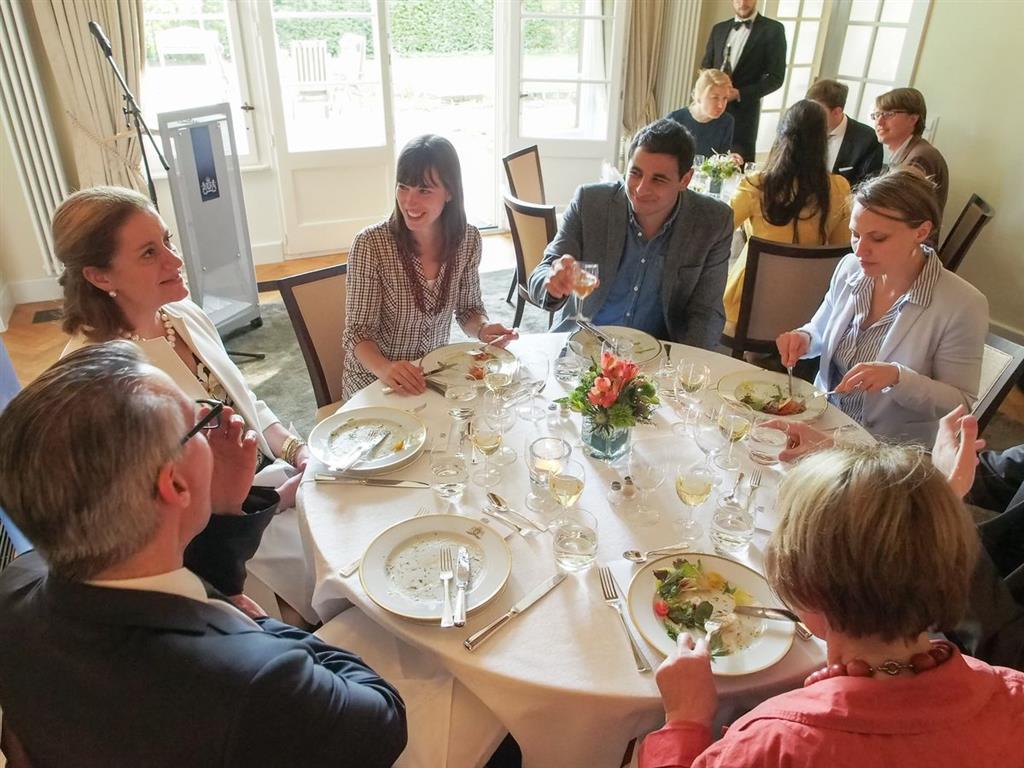
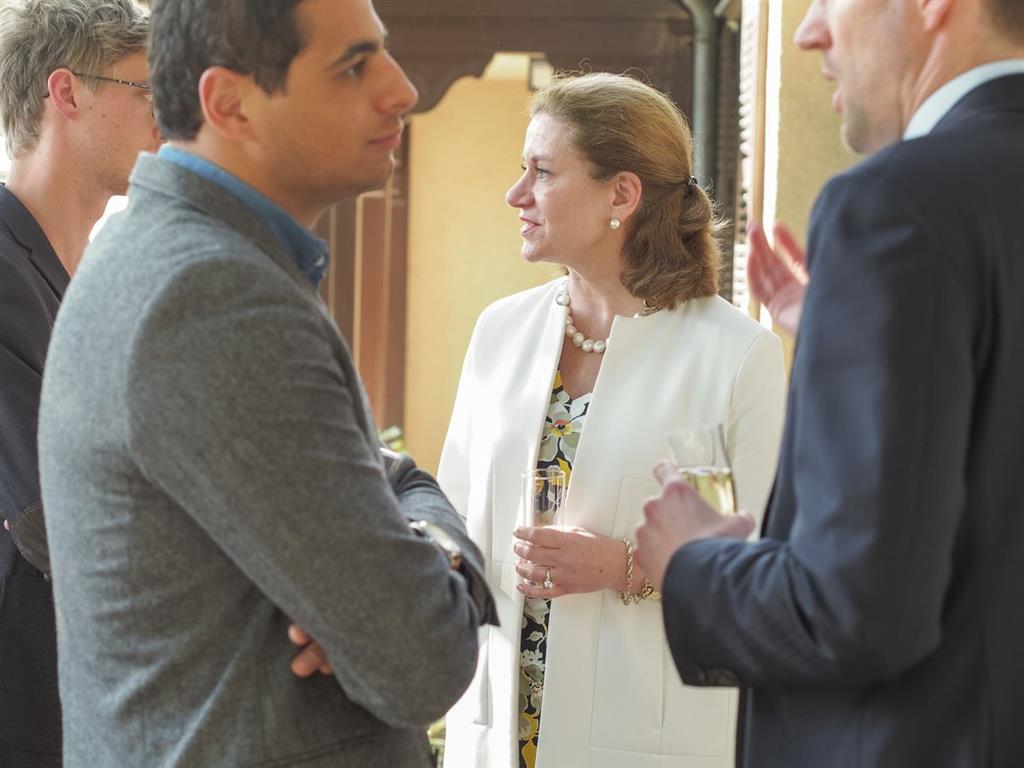
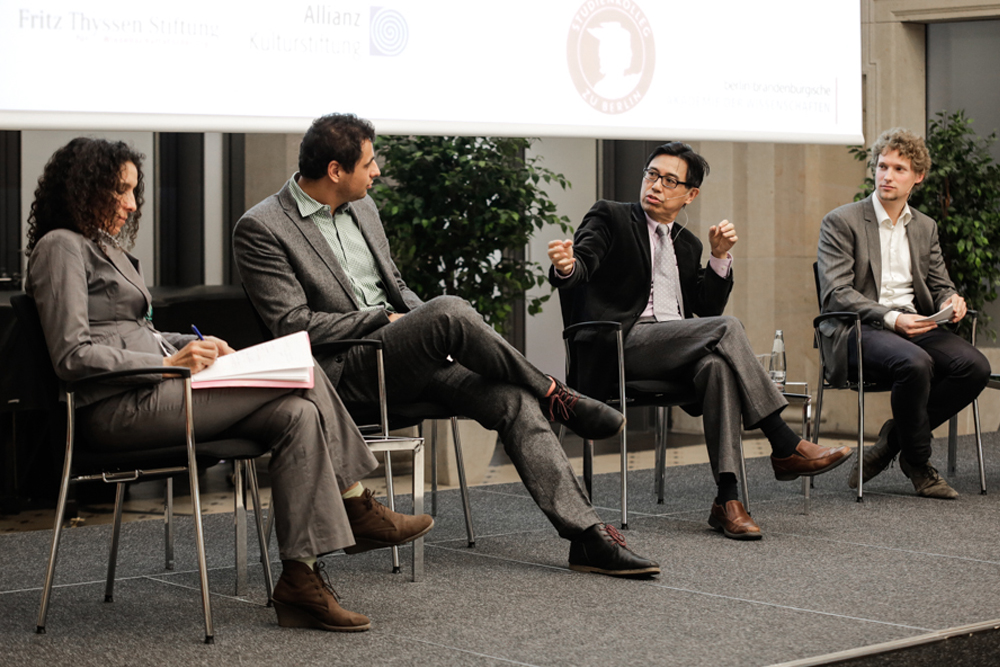
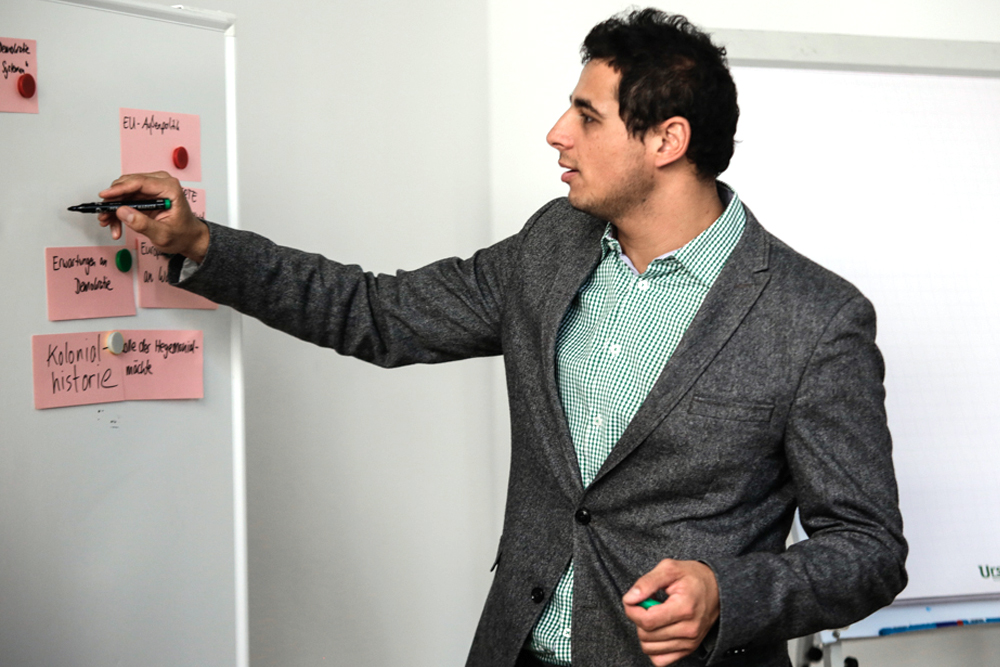
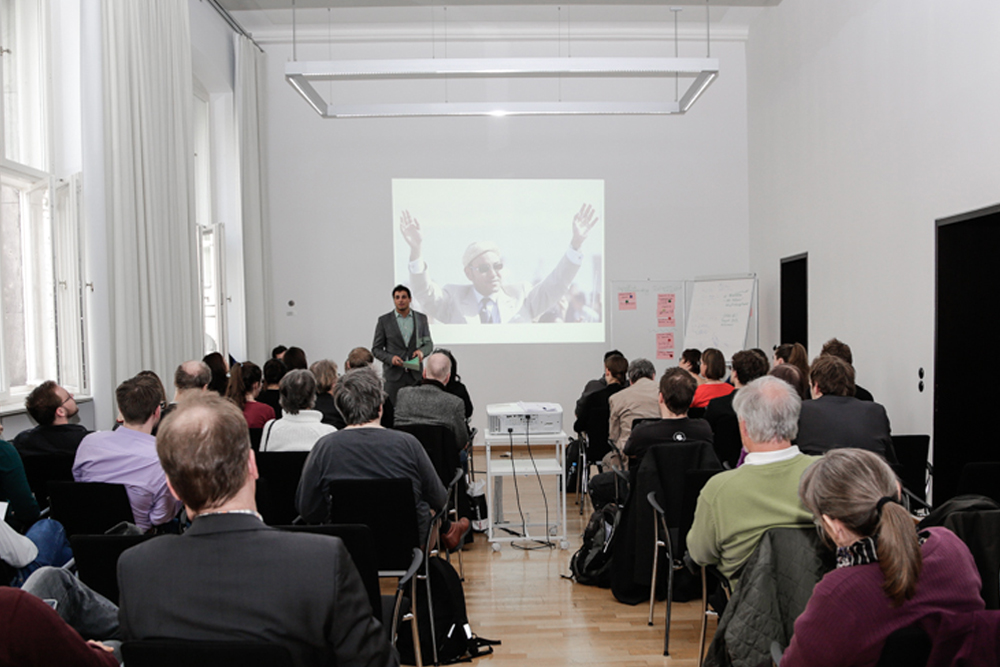
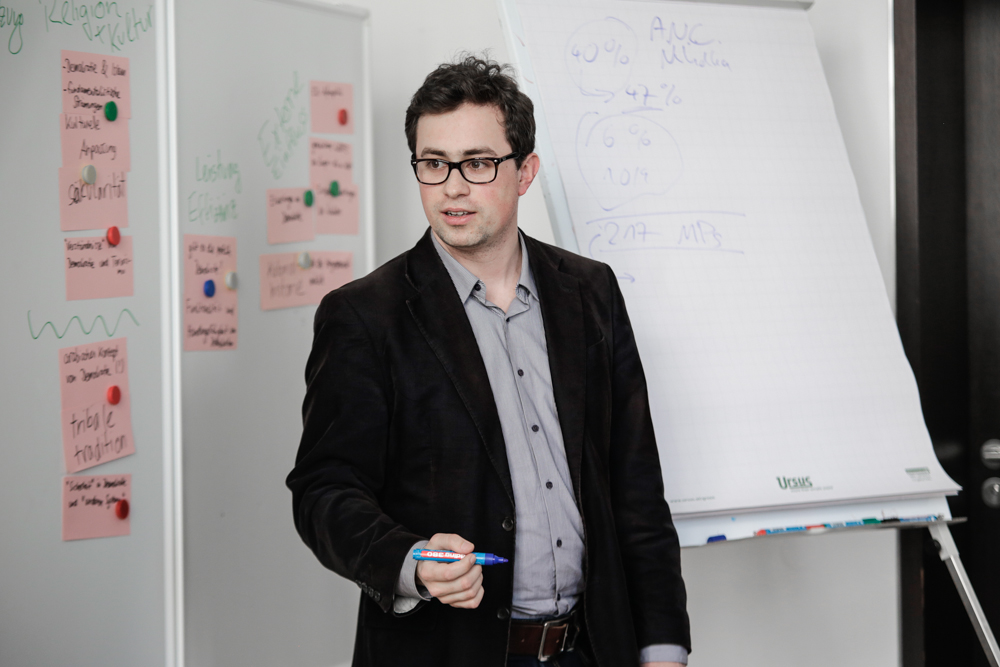
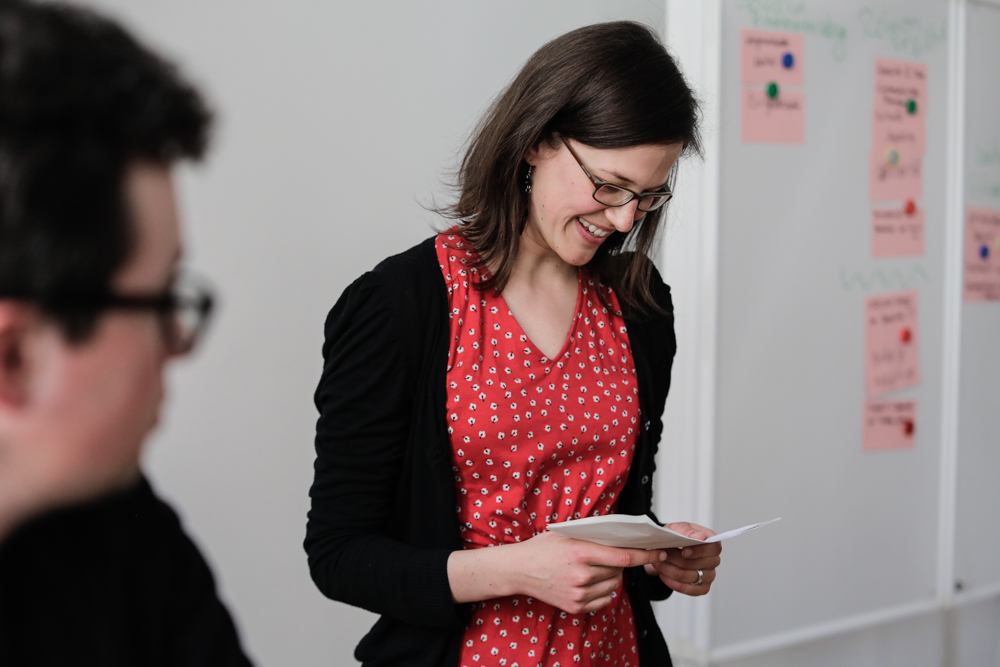
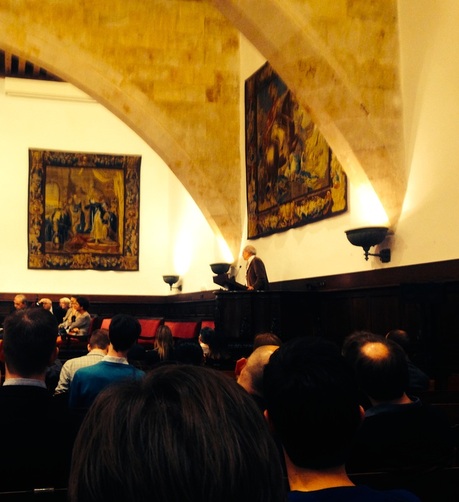

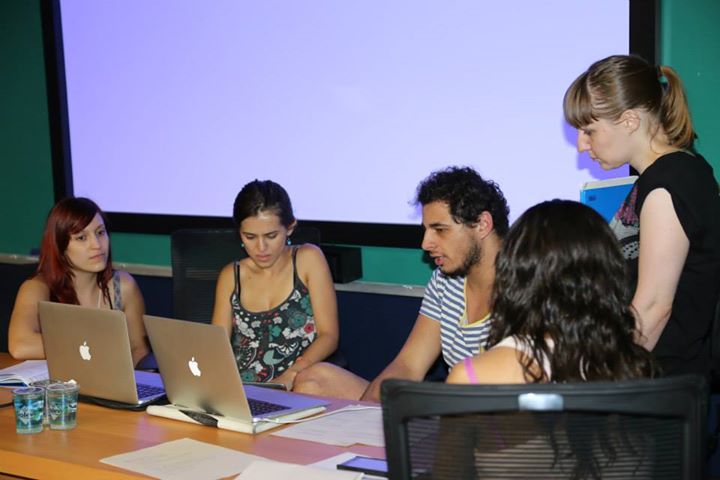
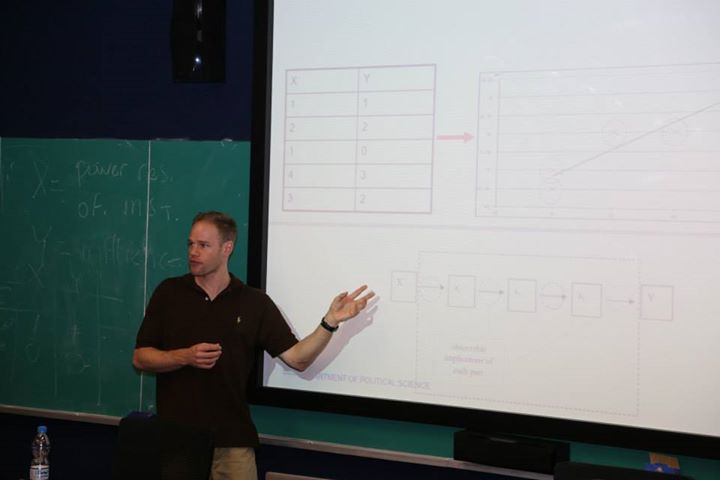
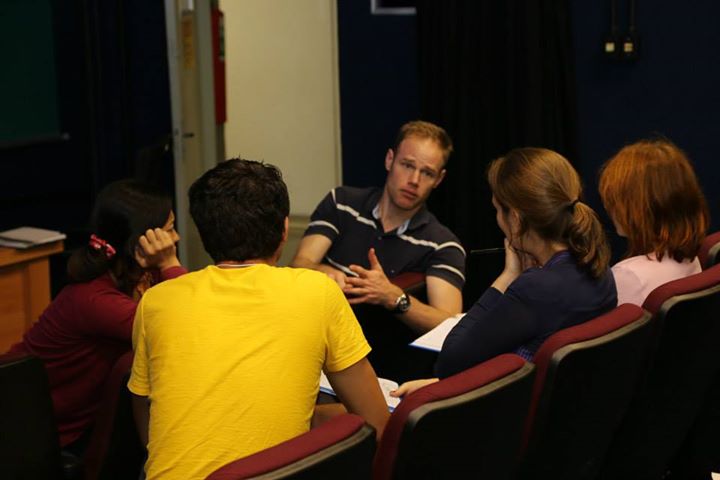
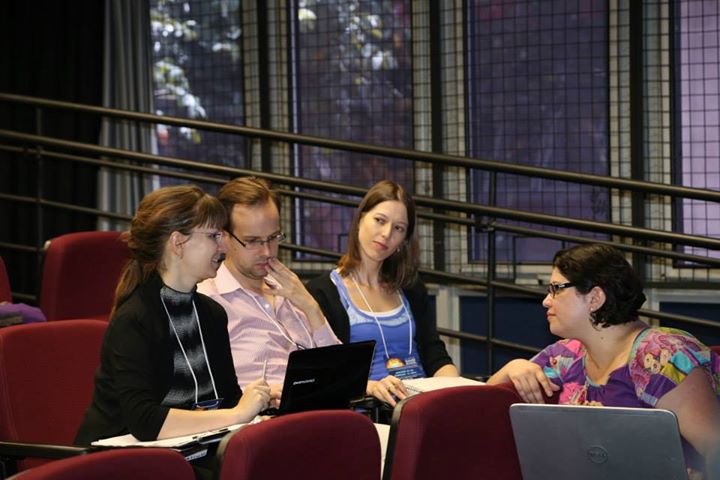
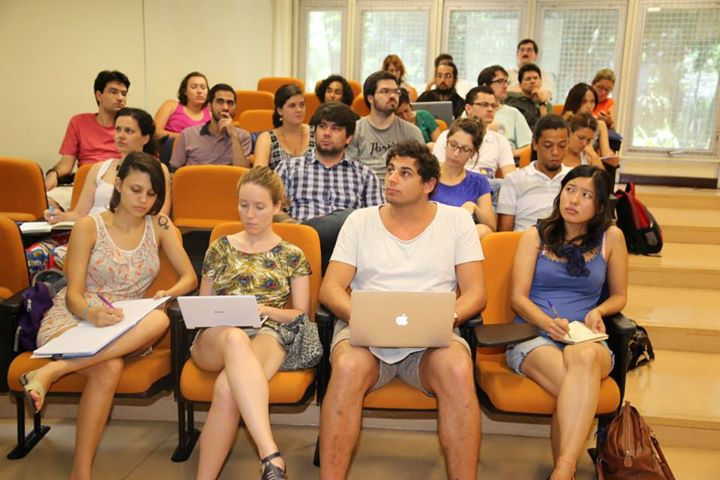
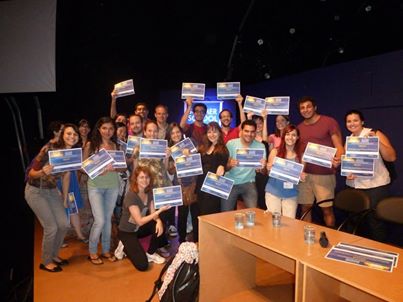
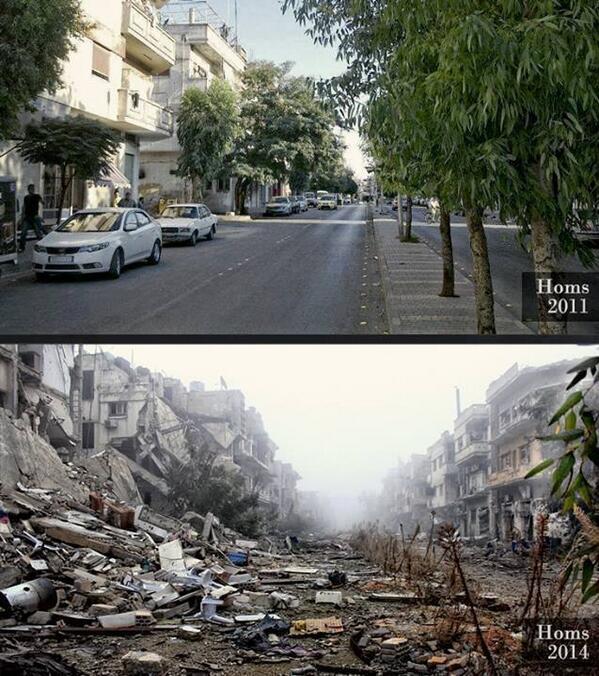
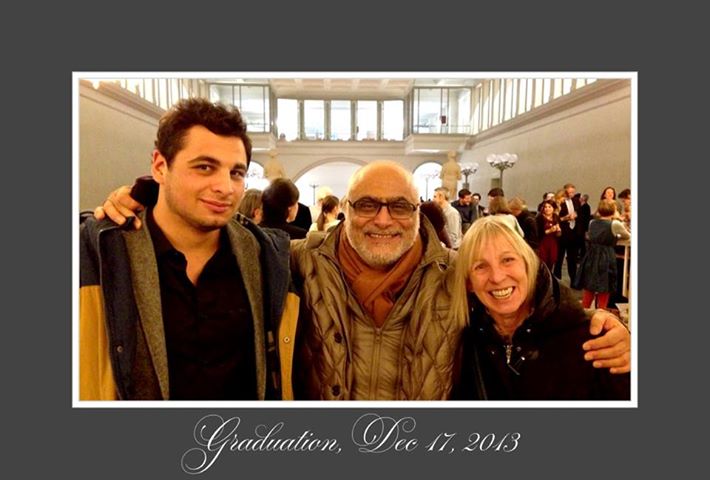
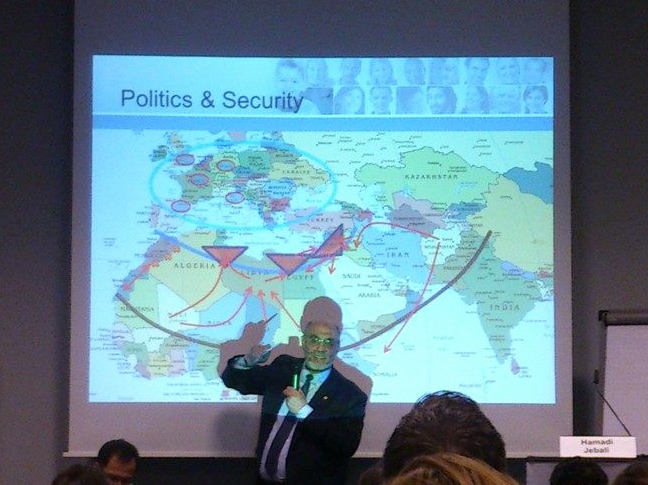
 RSS Feed
RSS Feed
